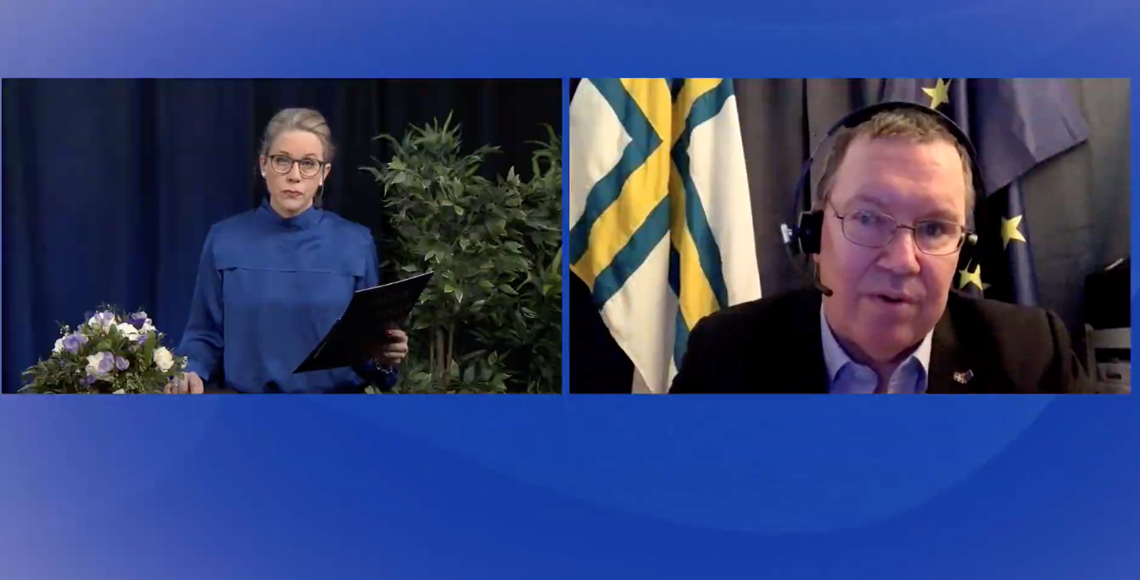EU Industry Week 2021: Northern Sweden's minerals and batteries crucial to the EU's green deal

How can Europe's Arctic regions contribute to the EU's green deal through industrial leadership and access to sustainable raw materials and batteries? This was the theme when the Swedish and Finnish trade associations for mines, minerals, and metal producers, Svemin and Finnmin, arranged a webinar about mineral extraction, battery production and recycling in partnership with the European Commission during EU Industry Week.
More than half of Europe's most important minerals and metals are found in the northernmost parts of Sweden and Finland, the European Arctic. As the countries also possess competence and capacity linked to the entire value chain, the region is the most advanced and valuable ecosystem for sustainable mining in Europe. With knowledge of everything from raw material extraction, battery production, recycling to reuse of raw materials, the region's actors can help realize the EU's green deal.
According to Rolf Kuby, new Director of Euromines, who represents several national mining associations such as Svemin and Finnmin, the ambition of the EU's Green Deal is to phase out fossil fuels, which requires, among other things, the transport sector to invest in green fuels and continued electrification.
According to Mikael Staffas, CEO of the Swedish mining company Boliden, Boliden is providing Europe with metals and is working hard to ensure that production takes place in the most environmentally friendly way as possible. At Boliden they are working on a certain type of copper that is more environmentally friendly than others, and whose production creates lower emissions today.
The world's greenest battery
Hanna Schweitz, battery manufacturer Northvolt's head of metals and raw materials, stressed that a lot of raw materials will be needed, a challenge they share with several other companies as the automotive industry transitions faster. Northvolt's goal is to produce the world's greenest battery and calls for more EU projects to support their ambition.
According to Peter Handley, Head of Unit for Raw Materials at the Commission's Directorate-General for the Internal Market, Industry, Entrepreneurship and Medium-Sized Enterprises, Sweden and Finland stand out in the battery value chain and there is a great EU interest that can bring effects in other areas. The mineral sector in Sweden and Finland has always been at the forefront and can be further developed, but a process must also be developed that also protects the Arctic environment, said Handley.
Recycling
Karin Ahnqvist, Sustainability Manager for Boliden Rönnskär said that the demand for copper is now growing to such an extent that it is difficult to deliver the required volumes. A lot because it takes four times as much copper to produce an electric car, then the equivalent of one with an internal combustion engine.
Erik Bergkvist and Elsi Katainen, members of the European Parliament, argued that the huge investments taking place in northern Sweden and northern Finland, which also creates several new jobs, play a significant role in the EU's green transition.
North Sweden European Office had the final word
Mikael Janson, Director North Sweden European Office, finally highlighted how Northern Sweden is at the top of Europe and at the same time at the very heart of the EU. In cooperation with northern Finland, the region is very much the EU's part of the Arctic. An area currently characterised by technological development and investment driven by the EU's green transition.
/Andreas Stenlund and John Kostet
